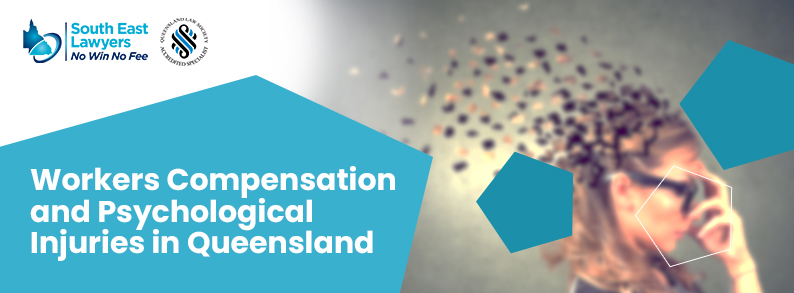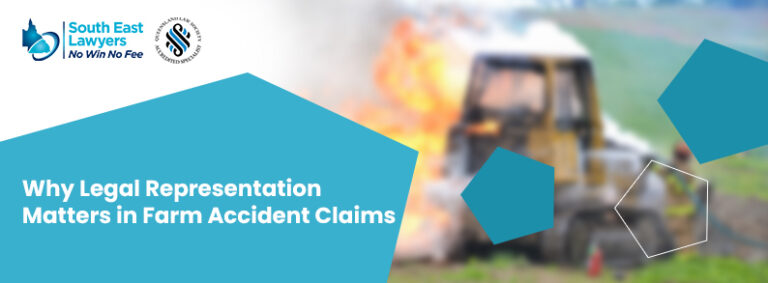Are you seeking compensation for a work-induced psychological injury? Properly navigating psychological injury workers compensation is crucial. In this article, we discuss psychological injuries, workers’ compensation, and how you can claim compensation with professional legal help.
Key Takeaways
- Psychological injuries in the workplace can result in conditions like depression, PTSD, and anxiety, which are eligible for workers’ compensation; prompt recognition is key to timely intervention and psychological health is essential for organisational productivity.
- Workers’ compensation for psychological injuries requires establishing work-related causation and includes benefits such as wage replacement and possible lump sum settlements for serious cases; navigating the complex claims process often necessitates legal guidance.
- Employers play a crucial role in preventing workplace psychological injuries by managing risks, maintaining a supportive environment, providing early interventions, and legally are responsible for worker safety, including mental health.
What is a psychological injury in the workplace?
Mental injuries, also known as psychological injuries, encompass cognitive or emotional symptoms that impact an individual’s life, affecting their thinking, feeling, and behaviour. Unlike physical injury, these injuries are not as straightforward; they often manifest in subtle signs and symptoms that may be overlooked until they start to significantly impact a person’s life.
Common psychological injuries include depression, post-traumatic stress disorder (PTSD), anxiety, and stress-related disorders. Symptoms of these injuries that may be eligible for compensation include stress, anxiety, depression, nightmares, loss of sleep, guilt, anger, fatigue, disorientation, poor concentration, and social withdrawal.
Psychological injuries can cause significant disruptions to an individual’s life, affecting their mental health and overall well-being. More often than not, these injuries result in extended time off work, adding to their complexity due to factors such as personal circumstances or stressful life events. Moreover, the stigma surrounding mental health in the workplace tends to exacerbate these issues, leading to bullying, harassment, and potentially discriminatory attitudes towards workers struggling with mental health challenges.
What causes psychological injuries?
The causes of psychological injuries in the workplace are varied and often complex. Workplace bullying and harassment are significant causes of psychological injuries, leading to conditions such as:
- sleep disorders
- depression
- anxiety
- post-traumatic stress disorder
- psychological distress
These instances of hostile behaviour can create a toxic work environment, causing immense stress and potentially leading to serious mental health issues.
Excessive work pressure, often paired with the fear of job insecurity, can create chronic stress, a significant predictor of poor health outcomes. Other contributing factors include:
- Environmental hazards
- Lack of support
- Constant change
- Individual factors like personality and past experiences
Employees who face exposure to traumatic events or who consistently have to deal with difficult customers may experience ongoing stress and fear, potentially leading to psychological harm. Employers must proactively identify and address these causes to avert the onset of psychological injuries.
Adopting a supportive approach to workers who claim psychological injury is seen as the best way forward for maintaining a healthy work environment. It is the responsibility of employers to ensure that their employees feel safe and supported, especially when dealing with mental health issues. A psychologically healthy workforce not only benefits the individuals involved but also contributes positively to the overall productivity and morale of the organisation.
Workers Compensation for Psychological Injuries
Workers compensation serves to protect employees who incur harm while on the job, and this includes psychological harm. This system is designed to safeguard worker well-being by providing necessary benefits and support for those who have suffered psychological injuries at work. It is a crucial safety net that ensures the welfare of workers, allowing them to focus on their recovery without worrying about financial hardships.
Eligibility for workers compensation
To be eligible for workers compensation for psychological injuries, the condition must be primarily caused by the individual’s work. This includes conditions such as:
- PTSD
- anxiety
- depression
- phobias
- sleep disorders
- worsening of pre-existing conditions due to work-related factors
Establishing the work-related causation of the psychological injury is vital to make a successful workers compensation claim.
Benefits and compensation
Workers compensation for psychological injuries provides a range of benefits to the injured workers. Employees can potentially receive compensation for medical costs, lost wages and ongoing treatment as part of their workers’ compensation claim. This financial support ensures that injured workers can focus on their recovery without the added stress of financial hardship.
Beyond wage replacement, if the psychological injury leads to permanent impairment, an employee may be entitled to a lump sum payment too.
The Role of Employers in Preventing Psychological Injuries
Employers have a significant role in preventing psychological injuries in the workplace. Psychological injuries can lead to:
- poor health outcomes
- hinder an employee’s ability to identify and respond to risks
- negatively impact worker morale, productivity, and an organisation’s reputation
Thus, safeguarding the psychological well-being of their workforce serves the best interest of employers.
Employers that prioritise psychological well-being in the workplace tend to retain workers, experience fewer psychological claims, and witness increased productivity. However, despite evidence that one in five Australians face mental health issues annually, almost half of senior managers do not believe their workers experience mental health problems. This highlights the need for increased awareness and understanding of mental health issues in the workplace.
Duty of care
Under occupational health and safety legislation, employers are legally obligated to ensure workplace safety, including managing risks that could lead to mental illness among workers. This includes avoiding causing or aggravating mental health conditions and making reasonable accommodations for workers with mental illnesses. Moreover, privacy laws bind employers to maintain confidentiality of an employee’s mental health information, disclosing it only with consent.
Workplace cultures that tolerate abuse and inadequate policies can perpetuate harassment and psychological injury. The legal proceedings for psychological injury claims depend on proving the employer’s duty of care, a breach of that duty, and a direct causal link between the breach and the psychological injury. Thus, employers must not only ensure a safe work environment but also be mindful of their actions and policies that could potentially cause psychological harm to their workers.
Managing workplace stress
Managing workplace stress is key to preventing psychological injuries. Employers can support employees experiencing stress by ensuring access to counselling and mental health support through an Employee Assistance Program (EAP). Developing and implementing strategies that address both individual needs and organisational structures can improve employee health behaviours and reduce workplace stress.
Navigating the Psychological Injury Claim Process
Navigating the psychological injury claim process can be a daunting task. Once diagnosed with a psychological injury, employees must:
- Report their condition to their employer
- Prepare necessary documentation including the claim form, medical certificate, and factual proof of the work environment contributing to the injury
- Seek legal advice promptly due to potential time limits on filing workers’ compensation claims
- Obtain expert opinions from specialists to boost the claim’s credibility.
Evidence to establish the relationship between work conditions and the psychological injury is required. This includes medical reports, witness statements, and records of incidents.
Do You Need Help Navigating a Workers Compensation Claim?
When navigating the workers’ compensation claim process for psychological injuries, it’s crucial to seek professional advice. The complexities of the eligibility and claims process often require specialised knowledge and expertise, making legal advice crucial for individuals filing such claims.
The best place to receive this advice is from an experienced personal injury lawyer who has worked on workers’ compensation claims of a similar nature in your state. Rules may vary slightly by state, which is why it is important to talk to a legal professional from the relevant state.
Many personal injury lawyers will offer initial consultations at no cost, and potentially their services on a no win, no fee basis. This means that you can find out if you have grounds to make a claim and you can work with a lawyer without having to pay for the services upfront. At South East Injury Lawyers, we offer a free case review and we offer our services on a no win, no fee basis in Brisbane, the surrounding area and throughout Queensland. We do this because we believe in everyone having access to legal services despite financial restrictions.
If you need help with a workers compensation claim, get in touch with our team today by calling us on 1300 446 999 or booking online here.






